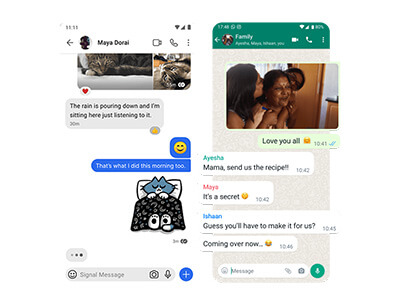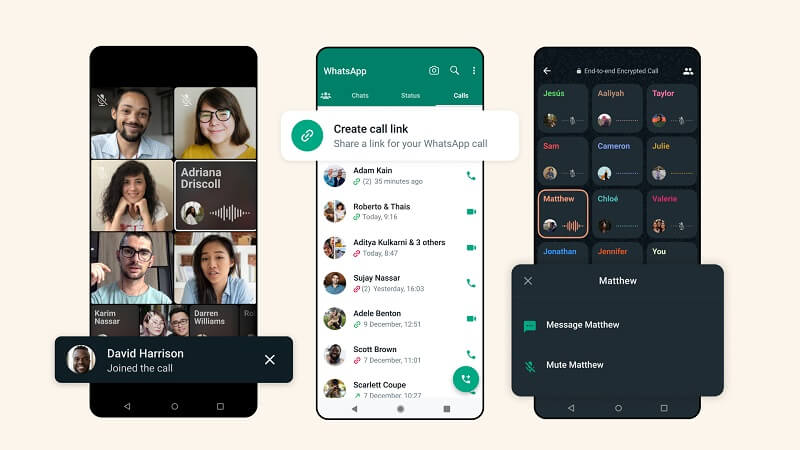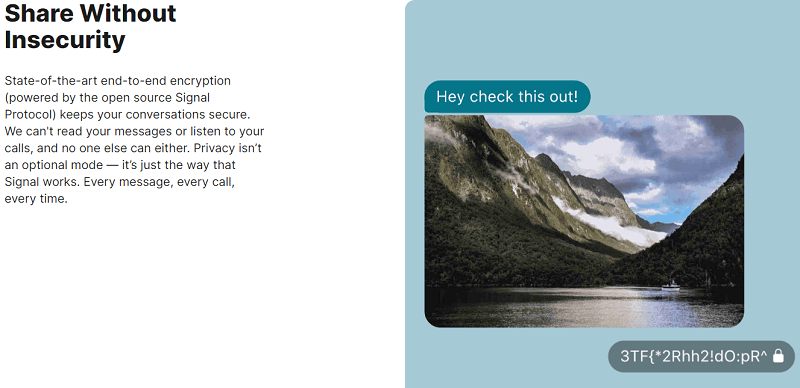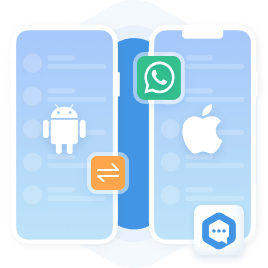Welcome to our blog post about the comparison between Signal and WhatsApp, two of the most popular messaging apps available today. With the increasing importance of digital communication, it's essential to understand the features and security measures of each app to make an informed decision on which one to use. In this blog post, we'll compare Signal vs. WhatsApp to help you determine which app is better suited for your needs. We'll cover various aspects of the two apps, including features and security, to provide you with a comprehensive overview of their differences. So, let's dive into the Signal vs. WhatsApp comparison and help you make the right choice.
Part 1. Signal vs. WhatsApp Features
When it comes to messaging apps, features play a crucial role in determining the user experience. Here's a comparison of the key messaging, calling, and group chat features of Signal and WhatsApp:
A. Messaging Features
- Both Signal and WhatsApp support text messaging, voice messages, and emojis.
- WhatsApp also offers the ability to send voice notes, share contacts, location, and documents.
- Signal allows users to edit or delete sent messages, while WhatsApp only allows message deletion.

B. Calling Features
- Signal and WhatsApp both offer voice and video calling features.
- Signal also supports group voice and video calling with up to 40 participants, while WhatsApp allows group calling of up to 32 participants for voice calls only.

C. Group Chat Features
- Signal and WhatsApp both support group chats, but Signal allows more participants, with a maximum of 1000 users compared to WhatsApp's 1024.
- Both apps offer the ability to name group chats, add or remove participants, and customize notifications.
Overall, both Signal and WhatsApp offer robust messaging features, but WhatsApp has a slight edge when it comes to the number of features it provides. However, Signal has a more straightforward and user-friendly interface. The next section will delve into the security measures of both apps to help you make a more informed decision.
Part 2. Signal vs. WhatsApp Security
When it comes to messaging apps, security is a top concern for many users. Let's take a look at how Signal and WhatsApp compare when it comes to encryption, user data privacy, and data sharing policies:
A. Encryption Comparison
- Signal and WhatsApp both use end-to-end encryption to secure user messages and calls.
- However, Signal uses the Signal Protocol, which is considered the gold standard of encryption, while WhatsApp uses a modified version of the Signal Protocol.
- Additionally, Signal encrypts metadata, such as message timestamps, while WhatsApp does not.

B. User Data Privacy Comparison
- Signal collects minimal user data, including phone number, profile name, and profile picture.
- In contrast, WhatsApp collects more user data, such as device information, IP address, and user activity.
- Both apps provide users with control over their data and allow for data deletion.
C. Data Sharing Policies Comparison
- Signal does not share user data with third-party advertisers or governments.
- WhatsApp shares user data with Facebook, which can be used for targeted advertising and data analytics.
- However, WhatsApp allows users to opt-out of data sharing for advertising purposes.
Overall, Signal has a stronger track record when it comes to privacy and data protection, while WhatsApp collects more user data and shares some of it with third-party companies. The next section will provide a recommendation on which app to use based on the comparison of features and security measures.
Part 3. Signal vs. WhatsApp: Which is Better?
After comparing the features and security measures of Signal and WhatsApp, which app is better? It ultimately depends on your needs and priorities. Here's a summary of the main points to consider:
- If you prioritize security and privacy, Signal is the better choice. It offers stronger encryption, collects less user data, and does not share data with third-party advertisers or governments.
- If you prioritize a wide range of messaging features and larger group calling, WhatsApp is the better choice. It offers more messaging features, including the ability to send voice notes, share contacts, location, and documents, and allows for larger group voice calls.
Overall, both Signal and WhatsApp are excellent messaging apps, and the choice between them ultimately depends on your priorities. If privacy and security are your top concerns, go for Signal. If you want a more feature-rich messaging app and don't mind sharing some data with Facebook, go for WhatsApp.
Part 4. Signal vs. WhatsApp vs. Telegram: A Quick Comparison
While Signal and WhatsApp are the most popular messaging apps, Telegram is another app worth considering. Here's a quick comparison of the three apps:
| Feature | Signal | Telegram | |
|---|---|---|---|
| End-to-End Encryption | Yes | Yes | Optional |
| Signal Protocol | Yes | Modified | No |
| Metadata Encryption | Yes | No | No |
| User Data Collection | Minimal | More | More |
| Third-Party Data Sharing | No | Yes | No |
| Messaging Features | Basic | Advanced | Advanced |
| Voice and Video Calling | Yes | Yes | Yes |
| Group Voice and Video Calling | Yes | Yes | Yes |
| Group Chat Participants | 1000 | 1024 | 200,000 |
As seen in the comparison, Signal offers the best security and privacy features, while Telegram offers the most advanced messaging features and largest group chat size. WhatsApp falls somewhere in between with more advanced messaging features than Signal but less secure than Signal.
Overall, users should consider their priorities when choosing between these three apps. If security and privacy are top concerns, Signal is the best choice. If advanced messaging features and large group chats are more important, Telegram is the best choice. WhatsApp is a good middle ground between the two with decent security and more advanced messaging features than Signal.
Conclusion
In conclusion, Signal and WhatsApp are two of the most popular messaging apps available today, and both have their strengths and weaknesses. By comparing their features and security measures, you can determine which app is better suited for your needs. Also, using a data mangement tool to backup your data is neccessary, you can use UnicTool ChatMover to backup and export your chats easily. Whether you prioritize privacy and security or a wide range of messaging features, there's an app for you. We hope this blog post has helped you make an informed decision on which app to use.

All-in-one WhatsApp Transfer
- Transfer WhatsApp from Android to iPhone without Data Loss
- Back up WhatsApp on Android & iPhone to computer free.
- Restore WhatsApp backup from Google Drive to iPhone.
- Export WhatsApp backup to HTML, PDF and CSV/XLS.
105,674 downloads
100% secure
